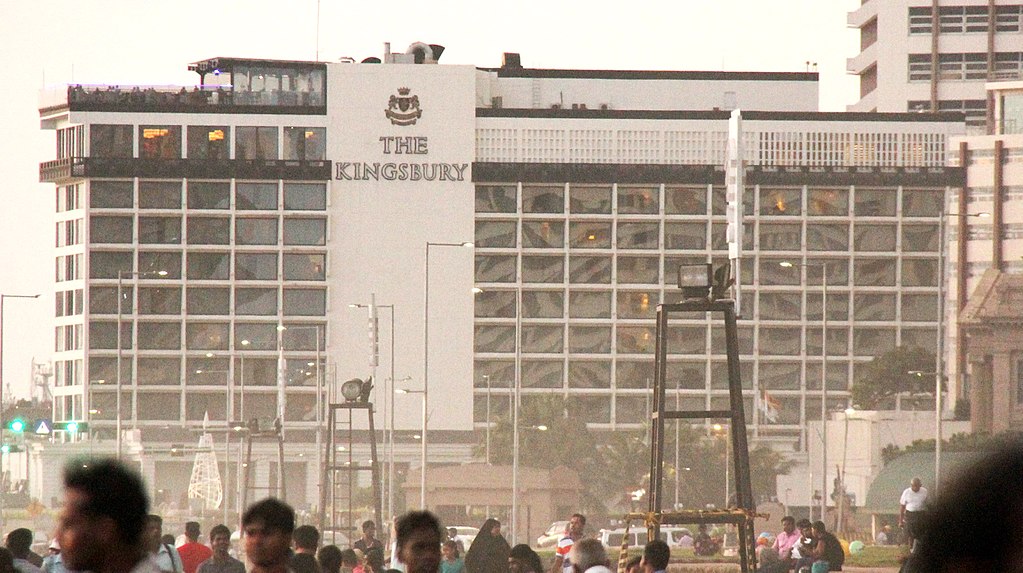
As the tragedy surrounding attacks on churches and hotels unfolded in Sri Lanka on Easter Sunday, the Sri Lankan government took the unusual step of preemptively blocking a range of social media sites.
The president’s office announced a block of Facebook and Instagram, reasoning that they could be used to spread misinformation. Internet censorship research group Netblocks reported evidence that WhatsApp, YouTube, Viber, Snapchat and Messenger were down as well.
Shutdowns like this are a clear violation of international rights to free expression and access to information. The protection of these rights is especially important in emergency situations, where people may need to call for help or communicate with family and friends to ensure their safety. While internet shutdowns are increasingly used as a tactic by governments to control online expression, pre-emptive shutdowns are quite rare. For instance, Bangladesh justified a block of Facebook, Viber and WhatsApp in 2016 as as a public security measure.
It is, unfortunately, not entirely surprising that the Sri Lankan government has taken this route, as Sri Lanka’s long history of communal violence has repeatedly played out in social media spaces. In March 2018, the government blocked Facebook, WhatsApp and Viber as part of its attempt to quell sectarian violence in the aftermath of clashes between Muslims and Buddhists in the city of Kandy, which resulted in the burning of a mosque and attacks on Muslim-owned businesses.
At the time, Nalaka Gunawaredene, writing on the citizen media site Groundviews, argued that these bans were counterproductive and ineffective, cutting many people off from important sources of information while tech-savvy and wealthier users simply switched on VPNs to skirt the blocks. Separate studies by the researcher and novelist Yudhanjaya Wijeratne and Ray Serrato found that many people installed VPNs to get around the blocks, and that the shutdowns hurt businesses reliant on social media platforms.
Those analyses haven’t stopped the Sri Lankan government from repeating and expanding its blocking exercise, this time with the apparent intention of preempting expected misinformation, disinformation and rumor, and to keep people from organizing reprisals.
Wijeratne reports on Twitter that he’s seeing more people prepared to skirt the blocks.
Just a general observation: this time, people seemed far more prepared to work around the block. Clearly citizens learned from March, if not the government.
— Yudhanjaya Wijeratne 🌀 (@yudhanjaya) April 21, 2019
Others are still turning to social media platforms to inform themselves and stay in touch their communities.
Respect 🙏 Sri Lankans🇱🇰!
Massive Kindness ,We All Can Proud !
Blood donors are flooding , Large number of people donating bloods in hospitals following Government requests #LKA #SriLanka #EasterSunday #EasterSundayAttacksLK #EasterAttackSL #Colombo pic.twitter.com/15pegwOnlV— Sri Lanka Tweet 🇱🇰 (@SriLankaTweet) April 21, 2019
Despite the fact that it is currently blocked in Sri Lanka, Facebook has launched its crisis response tool to report news, and to help users report whether they have been affected or search for possibly affected friends.
Mixed reactions to knee-jerk censorship
The government’s decision to shut down social media has evoked frustration, because such blocks are generally ineffective and cut people off from vital communication channels in a time of need.
But others have expressed support for the move. The Guardian quotes a Colombo resident who says that: “Not shutting down social media could have led to people coordinating attacks and riots against Muslims.”
The response in Sri Lanka, from both the government and many residents, suggests some collective ambivalence on the question of whether these platforms can have a net positive effect in a situation of emergency.
This is a markedly different narrative from what seemed dominant just a few years ago, when social media platforms were lauded as a powerful way to coordinate assistance in times of crisis. Facebook’s safety check tool even became a subject of controversy when it was not made available to residents of cities like Beirut, in the aftermath of bombings in 2015.
But today there is clearly deep uncertainty regarding the companies’ ability to keep vulnerable users safe in a crisis situation. Hate speech and disinformation appear to be driving factors in this change. In recent years, Sri Lankan digital media experts and advocates have implored social media companies to find ways to contain online hate speech, harassment and disinformation, to little avail.
In a 2018 report, Digital Blooms: Social Media and Violence in Sri Lanka, Sanjana Hattotuwa notes that both Facebook and other social media platforms, and the Sri Lankan government, failed to stop the proliferation of hate speech and disinformation surrounding the violence in 2018. Hattotuwa focuses on Facebook, as the preferred platform for Sinhala-language communications. He notes that while “social media is not the source of violent conflict,” it did provide a “channel to incite hate and mob violence.”
Facebook’s response to the Easter Sunday events in Sri Lanka has been remarkably muted, focusing on assistance to first responders and law enforcement, and simply stating that they are “aware of the government’s statement regarding the temporary blocking of social media platforms” and committed to helping.
Just as we may once have viewed blocking of social media sites in times of crisis as outrageous censorship, we might now see increased public support for blocks if social media companies are unable to manage threats and disinformation on their platforms.
At this moment of horror and sadness in Sri Lanka, the fate of platforms and their use may be a minor point. But the swift decision to block access to these platforms suggests that, in the eyes of the Sri Lankan government, social media platforms can make an already bad situation worse. In the days and weeks to come, the companies may see this as a moment to reflect on where they’ve gone wrong.
This story was originally published on Global Voices under a Creative Commons 3.0 license.